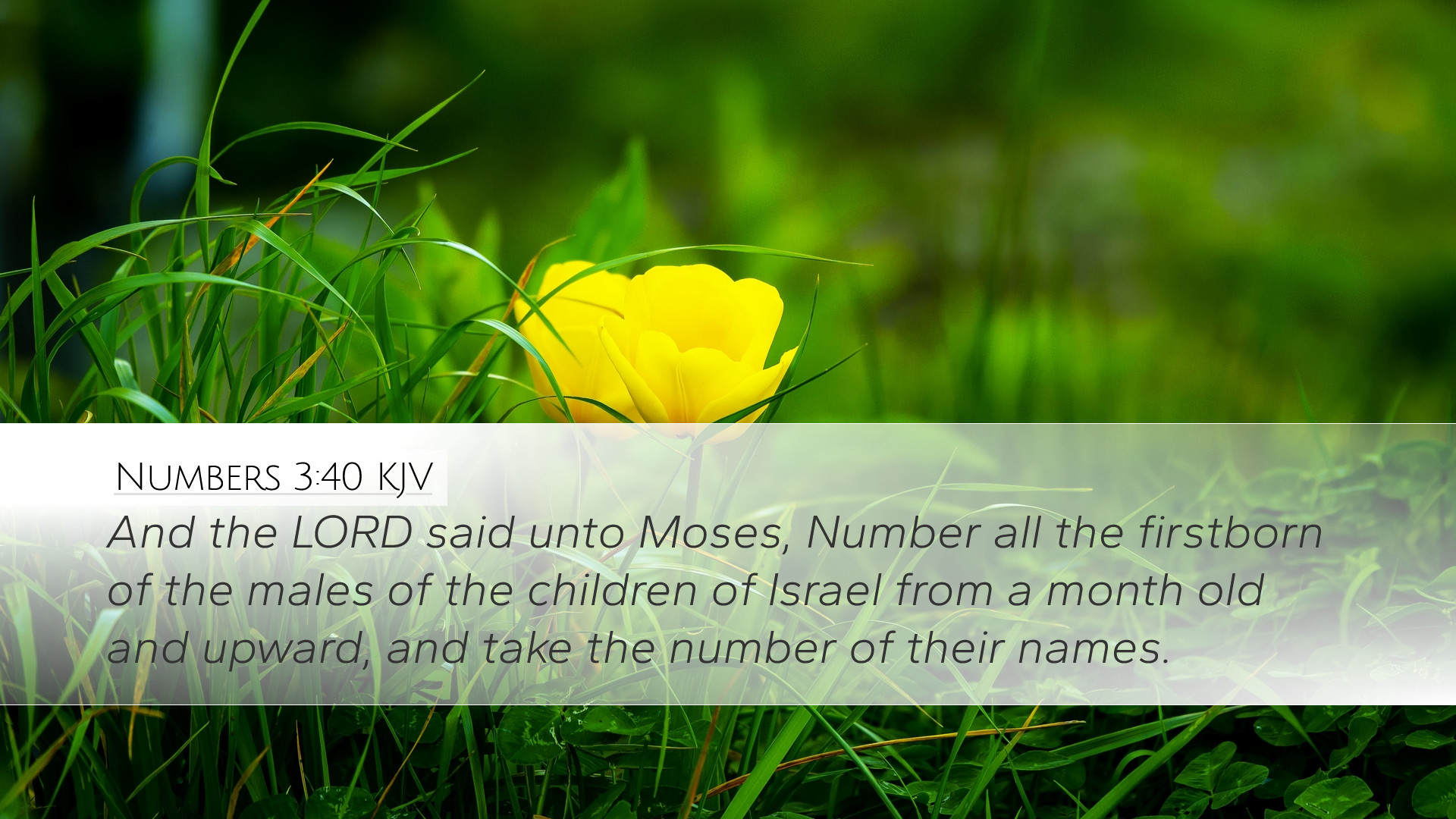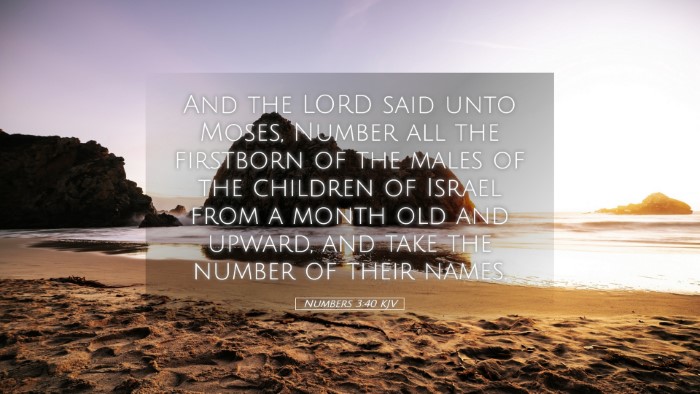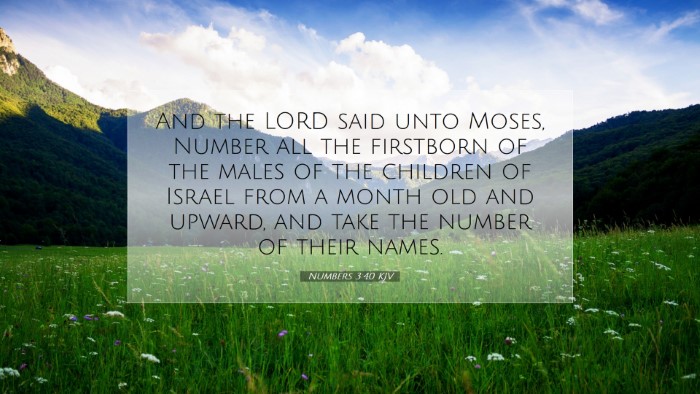Commentary on Numbers 3:40
Numbers 3:40 states: "And the LORD said unto Moses, Number all the firstborn of the children of Israel from a month old and upward, and take the number of their names." This verse serves as a significant moment in the context of the Israelite community during their wilderness wanderings. The command to count the firstborn males reveals deeper theological implications about redemption and consecration.
Overview of the Context
This command follows the events of the Exodus, particularly God's deliverance of Israel from Egypt. The Israelites are identified as God's chosen people, and in light of that, the firstborn hold a special place in the covenantal relationship. The census reflects not just a physical counting but also a spiritual identification of those who are set apart for God's purposes.
The Significance of the Firstborn
In ancient Israel, the firstborn son contained a dual significance:
- Family Leadership: The firstborn was typically regarded as the principal heir, inheriting the father's blessings and responsibilities.
- Divine Claim: The firstborn son represents a special claim that belongs to God, as seen in the Exodus narrative where God spared the firstborn of Israel while striking down the firstborn of Egypt (Exodus 12:29-30).
As noted by Matthew Henry, this command reflects God's ongoing relationship with Israel, reminding them of their deliverance and the importance of the firstborn in the context of divine protection and promise.
Theological Implications
The firstborn in Israel not only represents familial succession but also highlights themes of redemption. Albert Barnes emphasizes that the numbering of the firstborn serves as a reminder of their unique status as redeemed individuals. The Israelites are reminded that each firstborn belongs to God, and through this, they are continually recasting their story of redemption from slavery.
Furthermore, Adam Clarke points out that this counting is also a preparatory step leading to the instructions for the Levites’ consecration. The Levites were later designated to serve in the place of the firstborn, thus reinforcing their role as mediators between God and the people. This foreshadows the broader redemptive work seen throughout Scripture where Christ, the firstborn among many brethren (Romans 8:29), fulfills and redefines these roles in the New Covenant.
The Census Procedure
The instruction to "number all the firstborn" also highlights the organizational aspect of the Israelite community. Matthew Henry reflects on the careful attention that God takes in the arrangement of His people, highlighting His sovereignty and the importance of order in worship and community life. The act of naming each individual signifies a personal relationship, underscoring that God knows each of His people deeply and intimately.
Spiritual Lessons for Today
This directive holds practical spiritual implications for contemporary readers, particularly for pastors, students, and theologians:
- Identity in Christ: Just as the firstborn were noted and set apart, Christians are also called to recognize their identity as God’s chosen people (1 Peter 2:9). The act of remembrance in census can translate into remembering our identity and calling.
- Stewardship and Responsibility: The firstborn had roles and responsibilities, as do all believers today, which necessitates a life lived in service to God and others.
- Covenantal Communion: The relationship dynamic between God and Israel highlights the importance of covenant. Today, believers are invited into a new covenant characterized by grace and the work of the Holy Spirit.
Both Barnes and Clarke urge that understanding Numbers 3:40 requires an appreciation of God's faithfulness and the eternal significance of the roles within His covenant. The firstborn were reminded of their status, just as Christians should remain mindful of their position in Christ.
Conclusion
In summary, Numbers 3:40 is not merely a statistic but a proclamation of identity, divine claim, and the ongoing narrative of redemption that flows through the entirety of Scripture. As God commands Moses to number the firstborn, He is reminding His people of His past deliverances, current responsibilities, and future promises. This verse prepares the reader for understanding the role of the Levites and ultimately reveals the redemptive work of Christ, who redeems humanity as the firstborn of creation. The invitation to reflect on one's standing before God is vital for personal, communal, and ecclesiastical growth.


